Xiaomeng Xin
Memory-Free Generative Replay For Class-Incremental Learning
Sep 01, 2021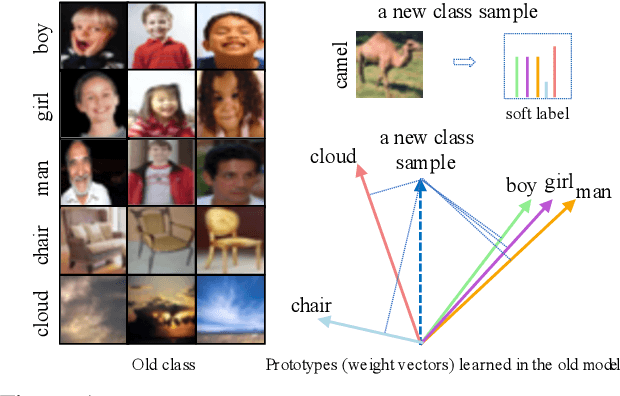

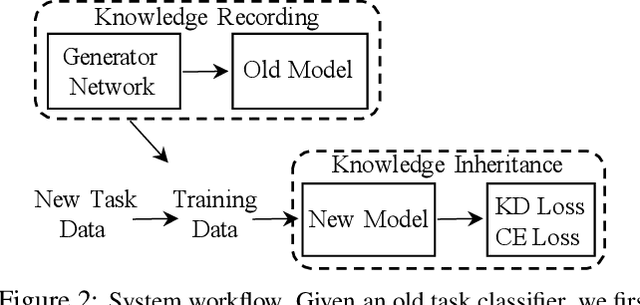

Abstract:Regularization-based methods are beneficial to alleviate the catastrophic forgetting problem in class-incremental learning. With the absence of old task images, they often assume that old knowledge is well preserved if the classifier produces similar output on new images. In this paper, we find that their effectiveness largely depends on the nature of old classes: they work well on classes that are easily distinguishable between each other but may fail on more fine-grained ones, e.g., boy and girl. In spirit, such methods project new data onto the feature space spanned by the weight vectors in the fully connected layer, corresponding to old classes. The resulting projections would be similar on fine-grained old classes, and as a consequence the new classifier will gradually lose the discriminative ability on these classes. To address this issue, we propose a memory-free generative replay strategy to preserve the fine-grained old classes characteristics by generating representative old images directly from the old classifier and combined with new data for new classifier training. To solve the homogenization problem of the generated samples, we also propose a diversity loss that maximizes Kullback Leibler (KL) divergence between generated samples. Our method is best complemented by prior regularization-based methods proved to be effective for easily distinguishable old classes. We validate the above design and insights on CUB-200-2011, Caltech-101, CIFAR-100 and Tiny ImageNet and show that our strategy outperforms existing memory-free methods with a clear margin. Code is available at https://github.com/xmengxin/MFGR
Deep Self-Paced Learning for Person Re-Identification
Oct 07, 2017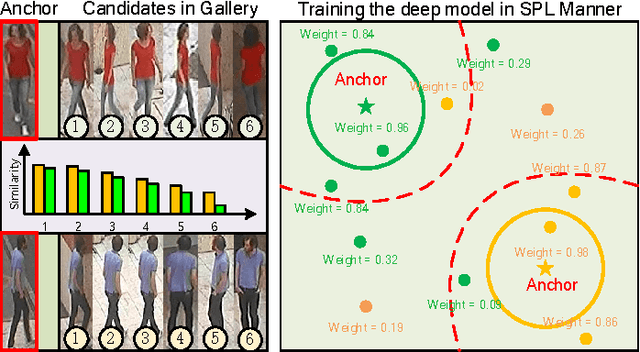
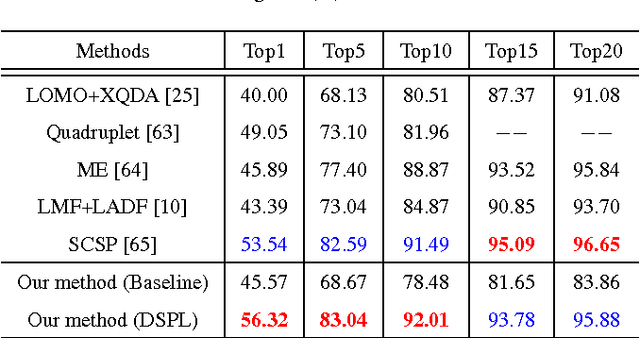

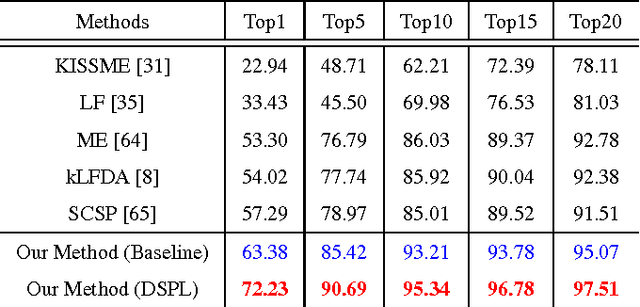
Abstract:Person re-identification (Re-ID) usually suffers from noisy samples with background clutter and mutual occlusion, which makes it extremely difficult to distinguish different individuals across the disjoint camera views. In this paper, we propose a novel deep self-paced learning (DSPL) algorithm to alleviate this problem, in which we apply a self-paced constraint and symmetric regularization to help the relative distance metric training the deep neural network, so as to learn the stable and discriminative features for person Re-ID. Firstly, we propose a soft polynomial regularizer term which can derive the adaptive weights to samples based on both the training loss and model age. As a result, the high-confidence fidelity samples will be emphasized and the low-confidence noisy samples will be suppressed at early stage of the whole training process. Such a learning regime is naturally implemented under a self-paced learning (SPL) framework, in which samples weights are adaptively updated based on both model age and sample loss using an alternative optimization method. Secondly, we introduce a symmetric regularizer term to revise the asymmetric gradient back-propagation derived by the relative distance metric, so as to simultaneously minimize the intra-class distance and maximize the inter-class distance in each triplet unit. Finally, we build a part-based deep neural network, in which the features of different body parts are first discriminately learned in the lower convolutional layers and then fused in the higher fully connected layers. Experiments on several benchmark datasets have demonstrated the superior performance of our method as compared with the state-of-the-art approaches.
 Add to Chrome
Add to Chrome Add to Firefox
Add to Firefox Add to Edge
Add to Edge